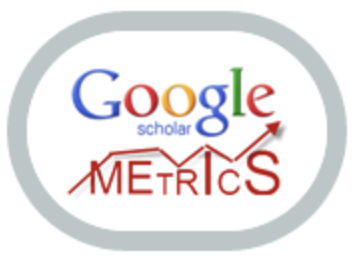From the sacred regulation to discursivity: Truth effects on the Brazilian education legislation
Keywords:
Discourse, Parresia, Teacher Training in Literature.Abstract
This paper aims to analyze the production of truth and knowledge on of- ficial texts and documents related to the high education and the teaching training process in literature. This study allows the investigation of the production of truth as well as the parresia effects, which are linked to historicity beyond the official documents and the sacred regulation issues on the Brazilian education system. The theoretical basis is the French Discourse Analysis Theory and the Michel Foucault archeogenealogical researching method. The analysis turn to the discursivity ran by the Brazilian education institutional tools, opening the possibility to con- clude the official regulation texts as a strategy to develop deep power-knowledge relations as much as the teacher political management.
References
BRASIL. Constituição (1988). Constituição da República Federativa do Brasil. Brasília, DF: Senado Federal: Centro Gráfico, 1988.
BRASIL. MINISTÉRIO DA EDUCAÇÃO. Presidência da República. Lei de Diretrizes e Base da Educação Nacional. Lei n° 9.394, de de- zembro de 1996. Poder executivo, Brasília, 1996. Disponível em:: Acesso em: 06 ago. 2018.
BRASIL. MINISTÉRIO DA EDUCAÇÃO. Secretaria da Educação Básica. Base Nacional Comum Curricular. Brasília, DF, 2016. Disponível em: <http://basenacionalcomum.mec.gov.br> Acesso em: 06 ago. 2018.
CORACINI, Maria José; BERTOLDO, Ernesto Sergio (Orgs.). O Desejo da Teoria e A Contingência da Prática: discursos sobre e na sala de aula. Campinas, SP: Mercado de Letras, 2003.
DELEUZE, Gilles. Michel Foucault. In: DELEUZE, Gilles. Conversa- ções. Rio de Janeiro: 34, 2000, p. 103-147.
DREYFUS, Hubert Ledere. RABINOW, Paul. Michel Foucault: uma tra- jetória filosófica - para além do estruturalismo e da hermenêutica. Tradu- ção de Vera Portocarrero e Gilda Gomes Carneiro. 2 ed. Rio de Janeiro: Forense Universitátia, 2010.
FERNANDES, Cleudemar Alves. Análise do discurso: reflexões intro- dutórias. São Paulo: Claraluz, 2008.
_______. Discurso e produção de subjetividade em Michel Foucault. La- boratório de estudos discursivos. Uberlândia, ano 2, v. 2, 2011, p. 1-19.
FOUCAULT, Michel. A arqueologia do Saber. 7 ed. Tradução de Luiz Felipe Baeta Neves. Rio de Janeiro: Forense Universitária, 2008a.
_______. A ordem do discurso. 3 ed. Tradução de Laura Fraga de Almeida Sampaio. São Paulo: Edições Loyola, 2006a.
_______. A hermenêutica do sujeito. Tradução de Márcio Alves da Fonseca e Salma Tannus Muchail. 2 ed. São Paulo: Martins Fontes, 2006b.
_______. Em defesa da sociedade. Tradução de Maria Ermantina Galvão. São Paulo: Martins Fontes, 2005.
_______. Microfísica do poder. Organização e tradução de Roberto Machado. Rio de Janeiro: Edições Graal, 2009.
_______. O governo de si e dos outros: curso no Col1ège de Fran- ce (1982-1983). Tradução de Eduardo Brandão. São Paulo: Editora WMF Martins Fontes, 2010.
_______. Segurança, território, população. Tradução de Eduardo Brandão. São Paulo: Martins Fontes, 2008b.
PÊCHEUX, Michel. Semântica e Discurso: uma crítica à afirmação do óbvio. Campinas, SP: EDUNICAMP, 1997.
_______ & FUCHS (1975). “A propósito da análise automática do dis- curso: atualizações e perspectivas”. In: GADET & HAK (Orgs.). Por uma análise automática do discurso. 3 ed. Campinas, SP: Editora da Uni- camp, 1997.
_______. Discurso: estrutura ou acontecimento. Tradução de Eni Puc- cinelli Orlandi. 5 ed. Campinas, SP: Pontes Editores, 2008.
VEIGA-NETO. Alfredo. Foucault e Educação. Belo Horizonte: Autênti- ca Editora, 2011.
Downloads
Published
How to Cite
Issue
Section
License
Copyright (c) 2019 Antonio Genário Pinheiro dos Santos; Rafaela Cláudia dos Santos

This work is licensed under a Creative Commons Attribution 4.0 International License.
Authors who publish in this journal agree to the following terms:
a) Authors retain copyright and grant the journal the right of first publication. The articles are simultaneously licensed under the Creative Commons Attribution 4.0 International Public License (CC BY 4.0) which allows the sharing of the work with acknowledgment of its authorship and initial publication in this journal.
b) Discursividades journal offers immediate free access to its content, following the principle that making scientific knowledge available to the public free of charge provides greater global democratization of knowledge.






